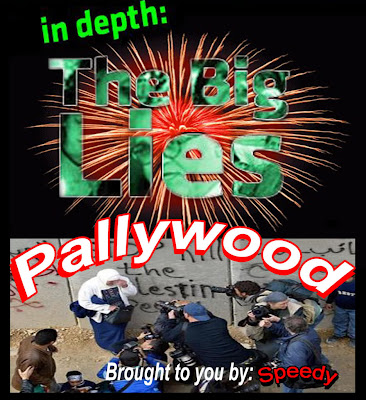The Arabs carry on a continuous "war of nerves", cleverly using the press, UN and Western gullibility --or seminal Anti-Seminism--to isolate Israel and weaken it from psychologically from within and without. Here's how.
“One need not destroy one's enemy. One need only destroy his willingness to engage. “
~ Sun Tzu ~
The recent Arab riots on the Temple Mount and inside Jerusalem’s Old City, the Goldstone Report, academic and economic boycotts as well as other tactics are part of the familiar ongoing war against Israel. The Arabs employ a number of psychological techniques to demoralize Israelis in order to convince them that their county has usurped Arab lands, is unjust and morally bankrupt. Their ultimate objective is for Israel to be internationally villified, isolated and ultimately for it to cease to exist. It behooves us to study their techniques so as better to counter them.
The Arabs borrow from revolutionaries including Carlos Marighella, a leader of the Brazilian guerrilla organization ALN. Marighella urged his followers to use the mass media, foreign embassies, the U.N., international commissions, and Vatican representatives to spread their lies and false rumors in order to discredit the government. Acts of terror, assassination, sabotage and kidnappings further create an environment of uncertainty, anxiety and apprehension.
During the first Intifada (December 1987 to October 1991), the Arabs manipulated the international press by placing individuals affiliated with the PLO and other Islamic political groups into their media bureaus. Rather than hide these connections, the Arabs used them to enhance their attraction to their employers.
Developing personal relationships with Israelis who oppose Jewish settlements in Judea and Samaria, meeting with them in Israel and taking them on tours of the refugee camps helped solidify support for the Arabs, and created a sense of guilt among those who know little about the history of the conflict .
Semantics is another weapon used against Israel. Instead of describing insurrections as riots, the Arabs call them demonstrations. This is in keeping, they assert, with their basic right in a democracy to protest against unfair government policies. What they don’t say is that the riots are designed to hasten the demise of Israel. After the Arabs continually used the term “demonstration,” members of the media adopted it as their own.
When a demonstration becomes violent after the military intervenes to disband the crowd, the Arabs allege that Israelis are committing atrocities. This is after trying to goad the army into committing indiscriminate acts of force, particularly against women and children.
Contrived shootings, protests, arrests for the Western media is another technique Arabs use. Dutch television showed an Arab boy being aggressively arrested by Israeli soldiers while he was walking on the street. To ensure that the TV crew noticed that he was “innocent,” he yelled to them to take notice of what was happening.
An investigation later revealed that the youth had purposely violated curfew after seeing the TV crew. He knew he would be apprehended, that his violent arrest would be recorded and the broadcast would help to discredit Israel. This was an isolated event, yet Israeli intelligence claimed that journalists knew how much they would have to pay for a stone throwing or a demonstration. The Arabs instructed the journalists when and where to stand in order to get the best shot.
This was brought to an extreme at the beginning of the second intifada in 2000. Muhammad al-Dura, a 12 year-old Palestinian boy, was reportedly shot by Israelis in cross fire near the Netzarim crossing in Gaza while being shielded by his father. The episode was filmed and broadcast on France TV 2. This was later shown by Israeli physicist Nahum Shahaf and a courageous Frenchman, Philip Craszenty, using IDF and other materials, to be staged and patently false, yet in the Muslim world his name remains an infamous symbol of grievance against Israel.
Historian Richard Landes began investigating the case as a blood libel after seeing this incident as “One Jew allegedly kills a gentile child in cold blood, and all Jews everywhere are responsible. That's the beginning of the wave of anti-Semitism that literally has marked the 21st century, and we have not seen the end of it. This is where cyberspace can play a crucial role.”
Landes coined the phrase “Pallywood” to describe this and other “pernicious productions staged by Palestinians in front of (and often with cooperation from) Western camera crews, for the purpose of promoting anti-Israel propaganda by disguising it as news.”
While examining footage from another alleged incident, Landes noticed a Palestinian with “blood” on his forehead ostensibly from a head wound running without any sign of trauma.
After giving what appears to be a Molotov cocktail to a colleague, the Palestinian darts into the crowd. In the next frame, he is put on a stretcher and taken to an awaiting ambulance, while keeping his head high though allegedly suffering from a head injury. “It’s really obvious that it’s fake,” Landes concludes.
In the Gaza beach explosion on June 9, 2006, eight Palestinians were killed and 30 or more injured. Though very compelling evidence shows they were killed by Palestinian land mines, the Palestinians accused Israel.
The foreign media sided with the Arabs. Landes noted “And herein lies another real tragedy: The eagerness with which the media seize upon anything negative about Israel, and the reluctance with which they reveal anything negative about the Palestinians, have radically skewed the world's view of what's going on here.”
In Rhetoric, Aristotle claimed that “Men have a sufficient natural instinct for what is true, and usually do arrive at the truth.” When it comes to the Arabs, many in the West and Israel have yet to use that natural instinct.

Arutz Sheva
No comments:
Post a Comment